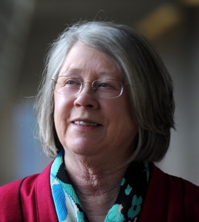
Wayne State University School of Medicine Professor Emeritus Alan Hudson, Ph.D., and Professor Emerita Judith Whittum-Hudson, Ph.D., of the Department of Immunology and Microbiology, are two of the authors of an editorial issued by 33 senior scientists and clinicians from all over the world to be published in the highly regarded, peer-reviewed Journal of Alzheimer's Disease.
The editorial stresses the urgent need for further research and even more importantly, for clinical trials of anti-microbial agents to treat Alzheimer's disease. This call for action is based on substantial published evidence indicating that certain microbes -- a specific virus and two specific types of bacteria -- are major causes of the disease.
The editorial summarizes the abundant data implicating these microbes, but until now this work has been largely ignored or dismissed as controversial -- despite the dearth of contradictory evidence. Proposals for the funding of clinical trials have been refused, even though more than 400 clinical trials for Alzheimer's based on other concepts were carried out over a recent 10-year period. All were unsuccessful.
Drs. Hudson and Whittum-Hudson said, "The Hudson and Whittum-Hudson laboratories in collaboration with the Balin laboratory at the Philadelphia College of Osteopathic Medicine were the first to report in 1998 the presence of Chlamydia pneumoniae in the areas of neuropathology in brains of late onset Alzheimer's patients. This research stimulated numerous other labs to investigate the association of Chlamydia pneumoniae and various neurologic diseases."
Opposition to the microbial concepts resembles the fierce resistance to studies some years ago that showed that viruses cause certain types of cancer and a bacterium causes stomach ulcers. Those concepts were ultimately proved valid, leading to successful clinical trials and the subsequent development of appropriate treatments.
"In consideration of the great social and financial impact of Alzheimer's disease, and the slow progress to a cure, it is imperative for the field to be open to vigorously explore alternative approaches that are supported by experimental findings," said George Perry, Ph.D., professor of Biology and dean of the College of Sciences for the University of Texas at San Antonio.